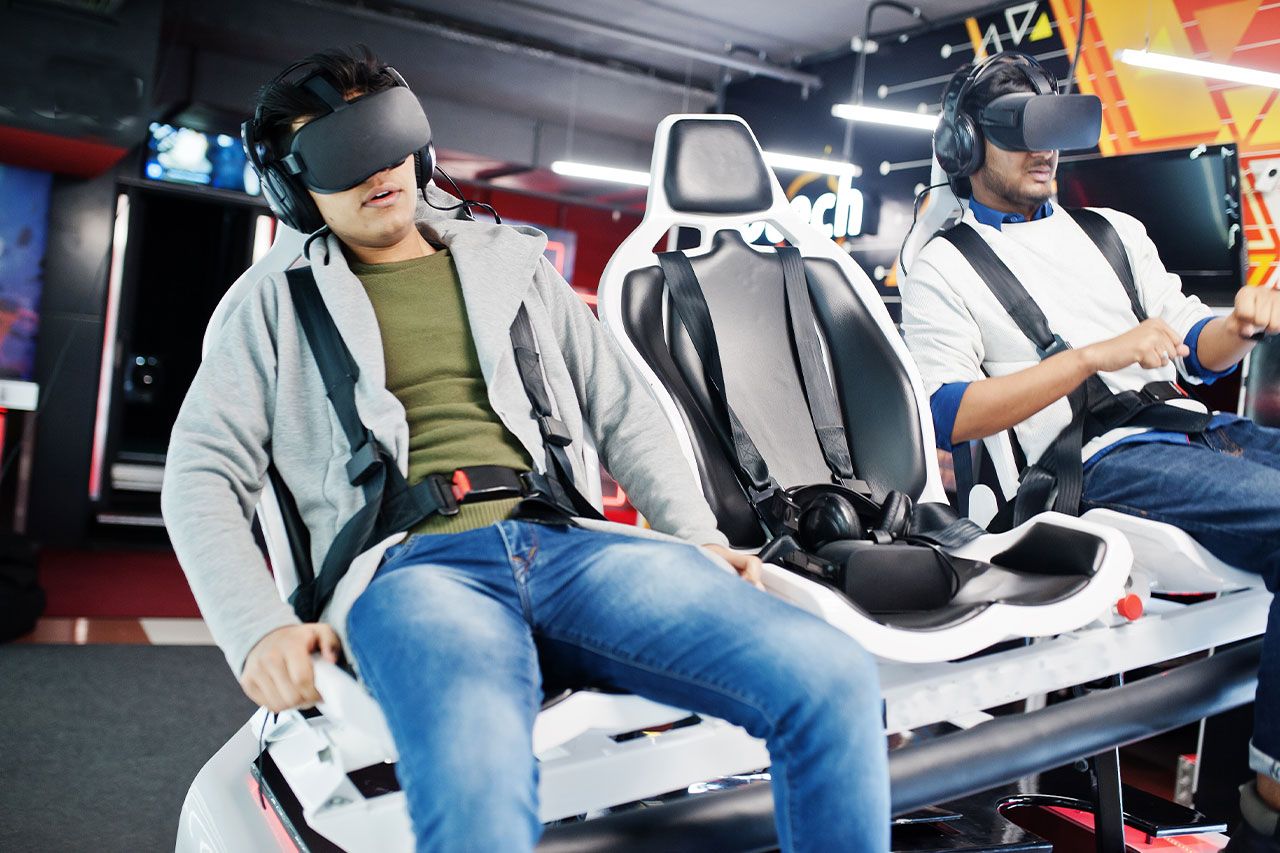Using the latest technology in any field can pose challenges and risks. However, standing still can be just as dangerous. In a market like eSports, where billions of dollars are at stake for the companies who can get it right, identifying trends and implementing them into their already successful model is a big part of expanding a flourishing enterprise to a global triumph.
Only recently has professional video gaming (eSports) become such a viable avenue for a career choice. Still, it has become a lucrative way to make money for those with a talent for video gaming.
How VR Impacts Different Gaming Genres
It’s important to point out that VR has the potential to work in eSports tournaments, but it is reliant on the type of game. In sports games like FIIFA, for instance, the need to use VR headsets is diminished, as the game relies on a broader view where you can see the whole team and control multiple players on the pitch. It’s counterproductive in a game where the onus isn’t on a first-person view and depends on a more significant perspective of the pitch.
However, first-person shooter games have flirted with the idea of VR for a while. There has been some success in this industry, and one of the main barriers currently in place is the affordability of VR headsets. On paper, games like Call Of Duty and Counter-Strike could work as standalone VR tournaments. Counter-Strike: Global Offensive (CSGO) has become a smash-hit game and eSports tournament and has continued to grow in popularity year after year.
VR gaming in first-person shooter games is an avenue that some specialist eSports providers have begun to explore. So although there are no VR tournaments for CSGO currently, CGSO esports news and tournament updates can happen quickly. With more money pouring into VR technology, it’s an avenue that more game providers are exploring. Any CSGO news will cover the latest game set to come out, too, the highly anticipated Counter-Strike 2. But for now, CSGO remains one of the most popular first-person shooter strategy games, and it will continue to have an audience even when the new game comes out, we suspect.
So while it might not be in the news as much now, we imagine the worlds of VR and Counter-Strike are on a collision course in the not-too-distant future. The same applies to a host of other eSports tournaments, too, such as PubG and potentially battle arena games like Dota 2.
Positives To Consider
Professional video gaming is a burgeoning sector, encouraging creativity at all levels. Many companies operating within the industry aim for new and inventive ways to generate profit, and VR is the most obvious unexplored terrain. Up until last year, the idea of implementing VR into eSports tournaments would be a costly proposition. Although Mark Zuckerburg rebranded Facebook as Meta, waxing lyrical about the possibilities within the Metaverse, it was too early to propose such a drastic change, or the implementation wasn’t quite right. It hasn’t been an outright failure, but it’s uncommon to see people refer to Meta as Meta, not Facebook.
However, the Meta CEO might feel vindicated by his initial play, given that Apple, one of the few companies actually bigger than Zuckerburg’s social media behemoth, has also entered the frame. Despite the money you’d need to fork out to buy a Vision Pro headset, the focus should be that Apple has aggressively moved into this sector, which could trickle down into real-time innovation and change in associated sectors like the eSports industry.
Final Thoughts
VR definitely has the potential to transform the way people play eSports. These tournaments are just as much of an advertising opportunity now as a tournament of skill. While the main prerequisite is playing your chosen game to an elite standard, VR companies could rebrand some tournaments if big companies like Apple want an opportunity to advertise real, practical, fun use cases for their new colossal investment.
At a player level, two things need to happen. Firstly, VR headsets need to become much cheaper so more people can experience them. Secondly, the games must provide just as much entertainment as the original eSports tournaments that have proven to be a hit. As a gimmick, a VR headset is an interesting piece of equipment. Still, for people to play games for hours or participate in video gaming tournaments while wearing them, they’ll need to bring a unique entertainment angle.
Once we boil it down to these factors, both are attainable. As the supply of VR headsets increases, the demand should come down, and the price should also come down. If companies specializing in game design can adjust to VR gaming, we could witness the birth of a brand new sector within the already monumentally booming eSports industry.





















+ There are no comments
Add yours